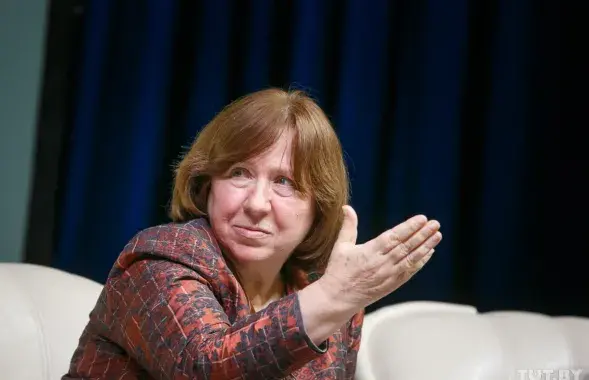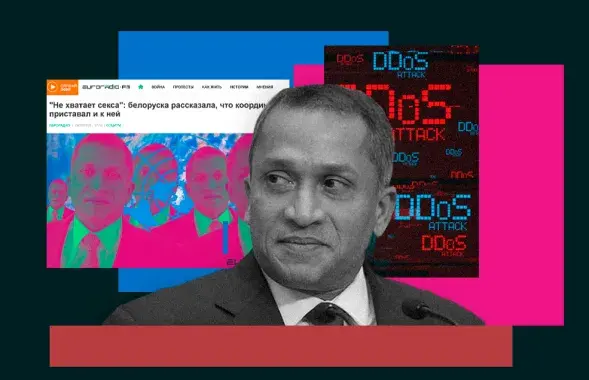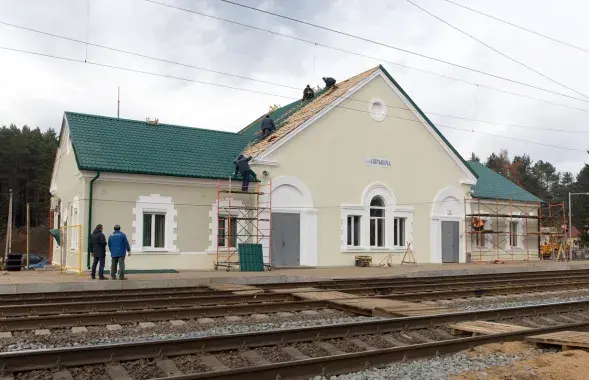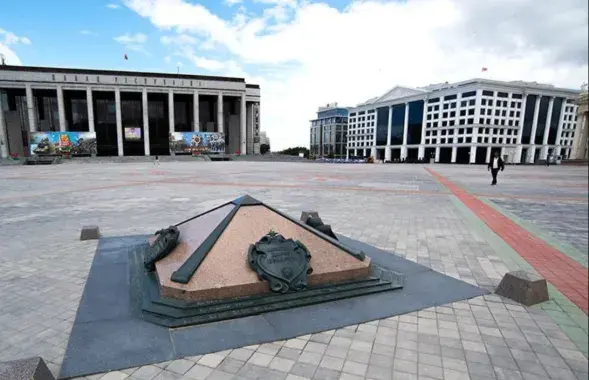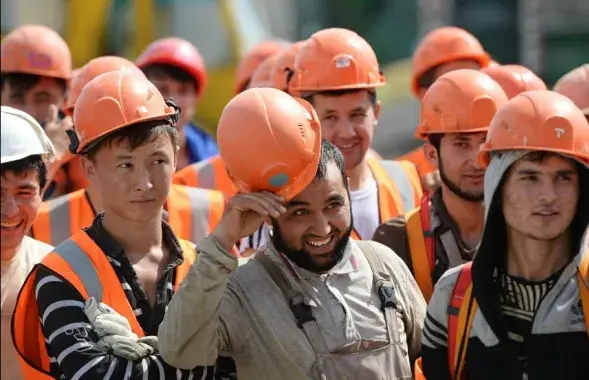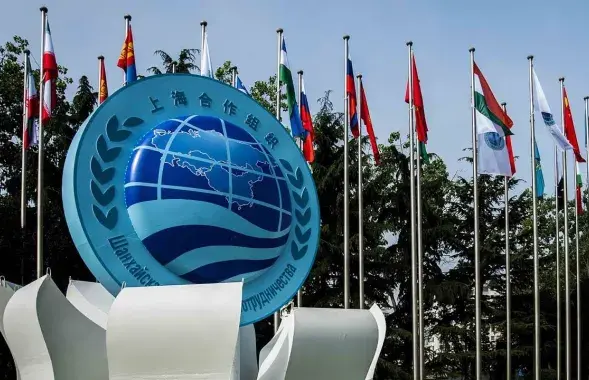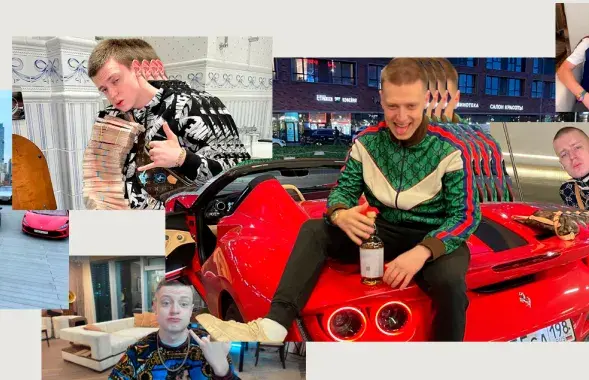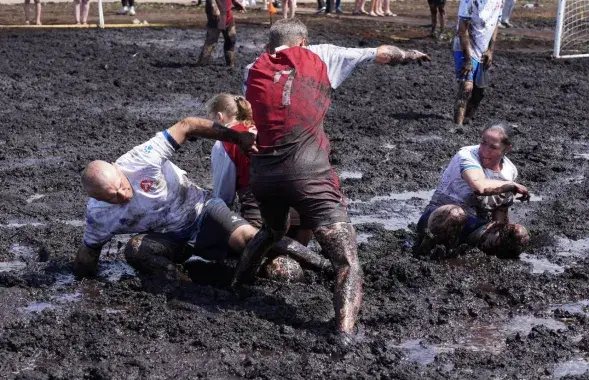Freedom Day as a celebration...big time! - opinion
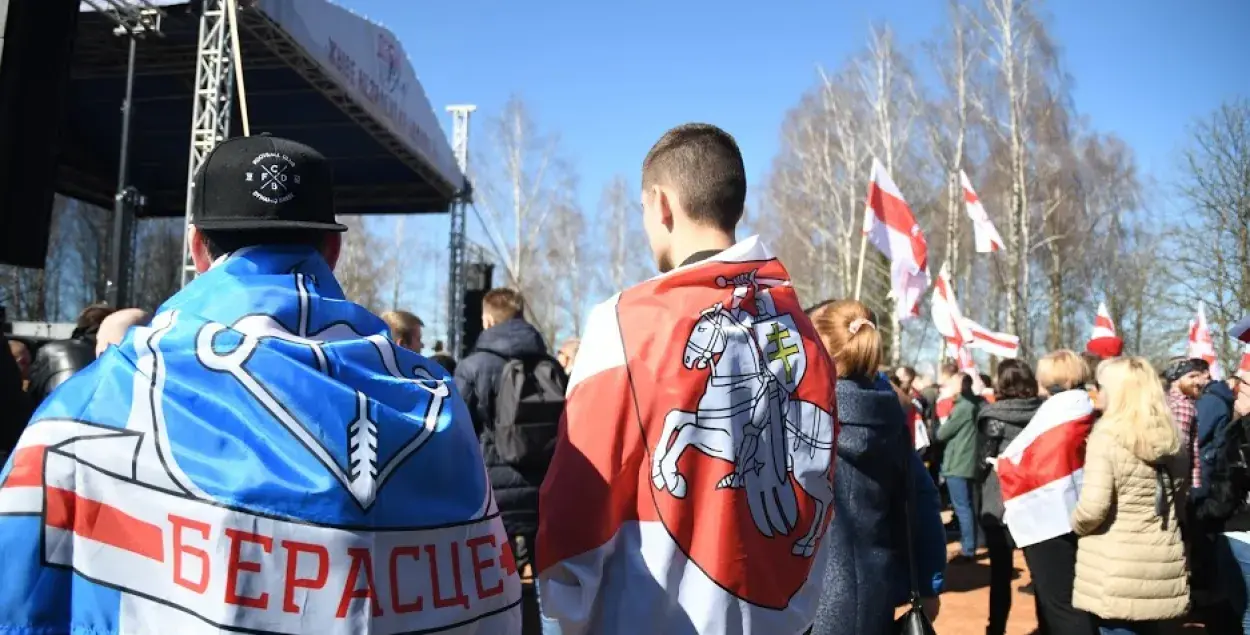
Euroradio image
BY EURORADIO OPINION WRITER ALIAKSEI KARPEKA
Freedom Day or 101 years since Belarusian National Republic (BNR) was marked unprecedentedly for three days this year. The celebrations included a concert in Hrodna on 23 March, a rally and a concert in Minsk on 24 March but ended business-as-usual with detentions in the capital city on 25 March.
[Belarusian rockers] Volski and Vaitsiushkevich had not been released from the police station yet but the Belarusian community on Facebook was confident that something was missing this time around and engaged in fierce battles on the nature of locations and formats.
After Lukashenka said on 1 March that a festive gig on Dynamo Stadium in downtown Minsk would not be allowed by the authorities, it was instantly clear that marking the anniversary of Belarusian independence at a decent venue was not going to happen in this city. The Bangalore Square, the officially authorized location for mass opposition events and often described as a remote Ghetto for the dissent, has long since stopped being a meaningful scenario.
The organizers of the ‘non-political’ celebrations eventually left Minsk to have a concert organized in Hrodna. The political opposition activists were allowed to gather in the remote Kieuski Public Garden in the capital city.
Political is not equal to politicized
When the last year’s success of #BNR100 was yet to materialize, the conversations about the Freedom Day format had been in full swing but limited to the prospects of yet another pathetic rally to Bangalore Square and propositions to change the routine. However, there had been many voices suggesting that every true Belarusian should team up with friends and occupy pubs ordering Belarusian music and thus promoting with their small deeds the culture of autonomous celebration.
Following # BNR100’s success, public opinion swang in favor of a big-crowd open-air happening in a decent central location. Ideally, the celebration should be unanimous and beat the previous year’s record in terms of its grandeur.
But this is a wrong path leading to nowhere.
In fact, nobody prevents anyone from staging a huge gig with a mixture of artists. Autonomously, a political rally can be organized. Alternatively, an activity for the youth – a rave party or a rappers’ battle. Alternatively, a full-fledged venue for educational and other initiatives.
But people here are used to a grand cocktail – a smoothie of politics and entertainment: one cannot get the taste, but vitamins and minerals are there.
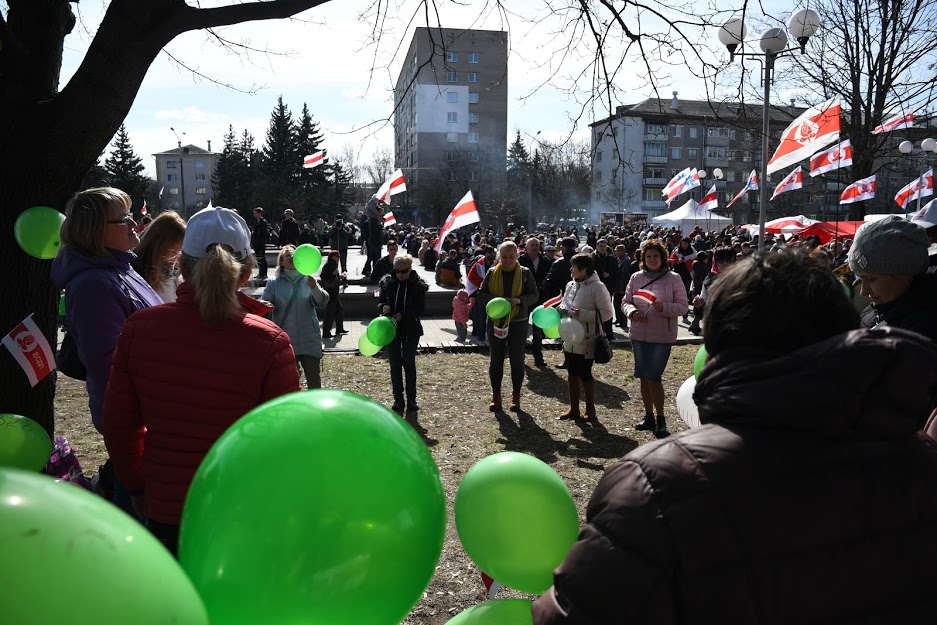
Freedom Day or regional Dazynki (Harvest Festival)?
You went to Hrodna. “Are you going to stage concerts in different cities and towns like they do with Dazynki festivals every year?” mock the voices on social media. There were also accusations that instead of one powerful event, organizers ended up with several and eventually quarreled with each other just like during the presidential elections."
But take a look at this situation from another angle. Instead of one concert, we had two or even three days of celebrations. Two events with separate messages are better than one big mixture leading to a mess. A huge public event can still scare away investors and players who are cautious not to be exposed at an ‘opposition action.’ It is easier to find support from various funders for an entertainment or educational event with the clearly stated objectives even under the auspices of Freedom Day.
A new non-politicized format for Freedom Day celebrations can attract new people. The current organizers, being the people with the media-sensitive mind-set, continue to operate with the categories like reach, a big number of visitors and beautiful pictures.
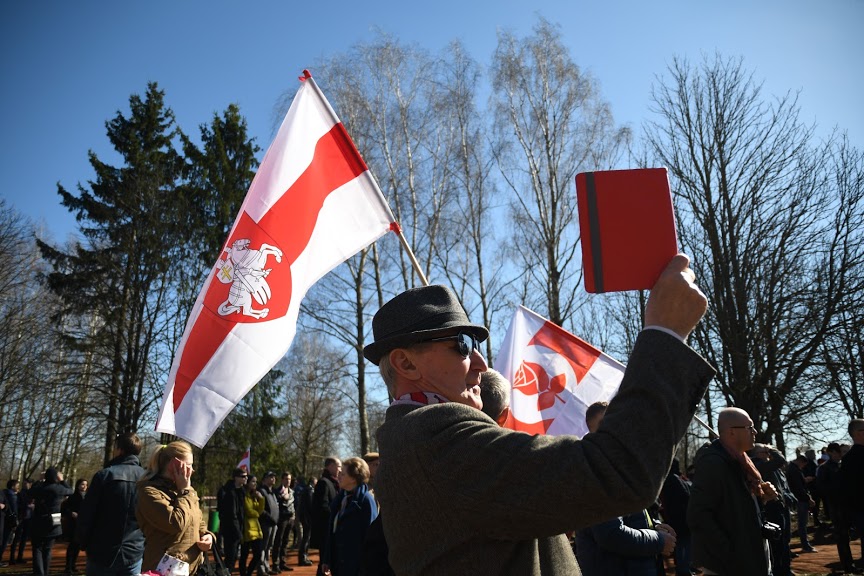
Success = FSP (Freak Summer Party)-like events
The organizers of Freedom Day 2.0 may claim endlessly that they are shifting away from politics, but the inertial perception of this day as an exclusively opposition protest has remained unchanged. For years, Belarusians were taught by propaganda and the riot police to avoid big-crowd happenings with vague objectives. At the end of the day, any reference to the opposition seriously shortens the list of artists ready to come on stage.
Perhaps, more radical measures should be taken to de-politicize the festivities? Should we refuse more vigorously from the ‘outdated’ format and fill our celebrations with a new sense?
Freedom Day needs to feel like the popular Freak Summer Party (FSP) festival: trendy DJs, popular musicians to mix, yes, a political celebration with informal activities. One needs to stop looking towards the Russian scene. One needs to look for local artists and the ones from Ukraine. Naturally, this will lead to a storm of disapproval and protests. But it will pass soon when the Freedom Day veterans will have something for them, and the youngsters will have their own format for celebration.
In fact, it took FSP long to reach the current level of popularity because it was breaking the habitual template of a ‘city festival’ with barbecue grills, Russian pop singers and warm vodka. They had to spend several years to become an accepted and recognized format. It is noteworthy that immediately after FSP became a success, there were angry voices lamenting that how come those hipsters are having fun in a new way.
The geography and quantity of events need to be expanded. There should be a variety of venues – maybe not necessarily huge for thousands of people but for a couple of hundreds. But they should be professional and meaningful with their own image and style.
Yes, there will be no beautiful picture for media and social networks. It will be difficult to shout about the unity of the nation around the historic symbols. Drones will not be necessary to relay the grandeur of the celebration. Freedom Day per se will stop being a proof that the opposition in Belarus exists; any opposition – young or old, just any.
The festivities need to include "edutainment" to supplement the entertainment motley from the established musical line-up with various educational initiatives: lectures, debates and interesting speakers.
No doubt, Freedom Day is a political event that promotes national identity. This is simply a fact. But being political does not necessarily mean being utterly politicized. If you want to make a celebration for everyone and attract a new audience, it is not enough to repeat all and the same every year. One has to reset, develop and come up with new ideas, and not focus their strategy on this-or-never approach.
Freedom Day is not just a gig or a compulsory protest or a rally with the opposition politicians making speeches. Freedom Day should be a celebration enjoyed en masse in the first place.
